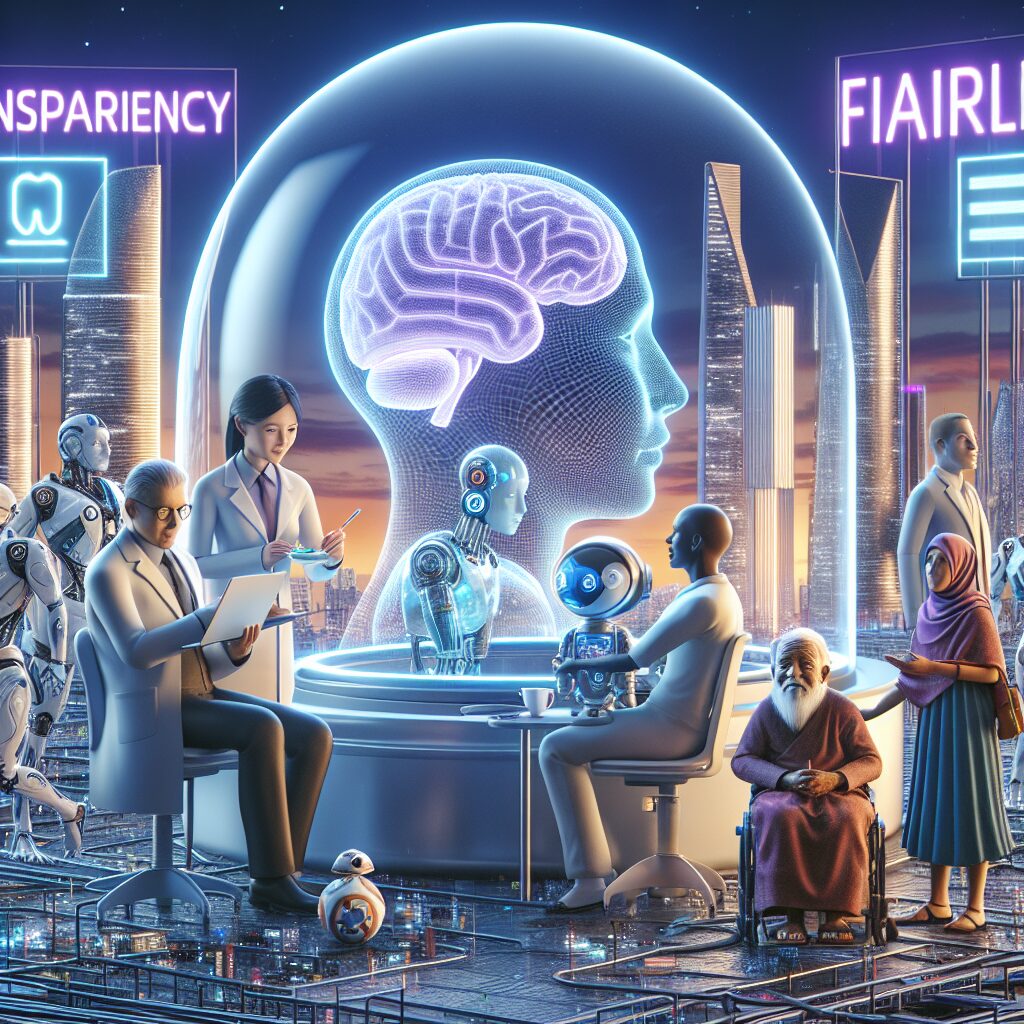AI Ethics & Discussions
As artificial intelligence (AI) continues to evolve, it brings a host of ethical considerations that demand our attention. The rapid advancement of AI technologies has sparked discussions across various fields, ranging from technology and business to law and philosophy. Understanding AI ethics is crucial for ensuring technologies are developed and deployed responsibly.
The Importance of AI Ethics

AI ethics refers to the moral principles and practices that guide the development and use of artificial intelligence. Its importance cannot be overstated, as AI systems increasingly influence decision-making processes in critical areas such as healthcare, law enforcement, and finance. Ensuring ethical practices in AI development helps prevent harm and promotes fairness, accountability, and transparency.
Key Ethical Concerns in AI
- Bias and Fairness: AI systems can inadvertently perpetuate and even amplify existing biases in the data they are trained on. This can lead to unfair treatment of individuals or groups, especially in sensitive domains like hiring, lending, and law enforcement. Ensuring fairness requires scrutiny of data and algorithmic processes to mitigate bias.
- Privacy and surveillance: The use of AI in data analysis and surveillance raises significant privacy concerns. AI systems can process vast amounts of personal data, leading to potential. Balancing the benefits of AI with the right to privacy is a key ethical challenge.
- Accountability and transparency: identifying responsibility when AI systems cause harm presents a challenging dilemma. With AI often functioning as “black boxes,” deciphering their decision-making is tough. Fostering transparency and creating accountability frameworks are crucial for building trust in AI technologies.
- Autonomy and Control: With the increasing autonomy of AI systems, it is crucial to consider the level of decision-making power they should have without human oversight. Maintaining human control over AI operations is essential to avoid unforeseen outcomes.
- Job Displacement: AI has the potential to automate tasks across various industries, leading to concerns about job displacement and economic inequality. Addressing these challenges requires proactive measures, such as reskilling programs and policies that support affected workers.
Discussions and Frameworks

To address these ethical concerns, various organizations and governments are developing frameworks and guidelines for the ethical use of AI. International bodies like the European Union and the United Nations have proposed principles to guide AI development, emphasizing human rights, fairness, and accountability.
Moreover, interdisciplinary discussions involving ethicists, technologists, policymakers, and the public are essential to shaping the future of AI. These discussions foster a shared understanding of ethical priorities and help create a consensus on best practices.
Conclusion
AI ethics is a dynamic and evolving field that requires continuous attention as technology progresses. By engaging in discussions and developing robust ethical frameworks, society can harness the benefits of AI while minimizing its risks. Responsible AI development is not just a technical challenge; it is a moral imperative that will shape the future of technology and its impact on humanity.

Pingback: Understanding AI Tools and Platforms
Pingback: Prompt Generation: Top AI Tools 2025